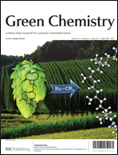
GREEN CHEMISTRY
Scope & Guideline
Exploring the synergy between chemistry and environmental stewardship.
Introduction
Aims and Scopes
- Sustainable Chemical Processes:
Research emphasizing the development and optimization of chemical processes that reduce waste and energy consumption, thereby promoting sustainability. - Green Synthesis Techniques:
Innovative approaches in synthesizing chemical compounds using environmentally benign methods, including the use of renewable resources, waste valorization, and eco-friendly solvents. - Biomaterials and Biocatalysis:
Exploration of natural materials and biological processes for catalyzing chemical reactions, focusing on their applications in green chemistry. - Electrochemical Methods in Chemistry:
Utilization of electrochemical techniques for sustainable synthesis, emphasizing energy efficiency and reduced environmental footprints. - Remediation and Waste Management:
Research on methods for the remediation of pollutants and waste management strategies that align with green chemistry principles.
Trending and Emerging
- Electro-sustainable Synthesis:
An increasing trend towards utilizing electrochemical techniques for synthesizing organic compounds, highlighting the journal's focus on energy-efficient and sustainable practices. - Biobased Materials and Green Nanotechnology:
Research on biobased materials and the synthesis of nanoparticles using green methods is gaining traction, emphasizing sustainable applications in various fields, including medicine and environmental remediation. - Waste Valorization:
A prominent theme focusing on converting waste materials into valuable products, showcasing innovative approaches to reduce environmental impact and enhance resource efficiency. - Plant-Based and Natural Product Synthesis:
Emerging interest in utilizing plant extracts and natural products for chemical synthesis, reflecting a trend towards harnessing biological resources for sustainable chemistry. - Innovative Remediation Techniques:
A growing emphasis on developing novel remediation strategies for environmental pollutants, particularly in the context of pharmaceuticals and agrochemicals, demonstrates the journal's commitment to addressing pressing environmental challenges.
Declining or Waning
- Conventional Solvent Utilization:
There is a noticeable decrease in studies employing traditional solvents, as the focus shifts towards solvent-free or greener alternatives that align with sustainability goals. - Traditional Catalysis Methods:
Research on conventional catalytic methods is less frequent, with a growing emphasis on biocatalysis and organocatalysis that promote eco-friendliness. - Non-Eco-Friendly Synthesis Protocols:
The journal has seen a decline in publications discussing non-eco-friendly synthetic protocols, reflecting a broader commitment to eliminating harmful practices in chemical synthesis. - Synthetic Methods Lacking Environmental Considerations:
There is a reduction in the publication of studies that do not prioritize environmental impact, indicating a shift towards methodologies that inherently consider ecological consequences.
Similar Journals

CHEMICAL PAPERS
Advancing Innovation in Chemical SciencesChemical Papers is a distinguished scientific journal published by Springer International Publishing AG, catering to the fields of Biochemistry, Chemical Engineering, and Materials Chemistry. With an ISSN of 0366-6352 and an E-ISSN of 2585-7290, this journal has been a pivotal platform for the dissemination of research findings since its inception in 1973. Over the years, it has maintained a strong academic presence, as evidenced by its Q2 and Q3 rankings in several pertinent categories as of 2023, including Chemical Engineering and Industrial and Manufacturing Engineering. Although the journal is not currently Open Access, it remains an invaluable resource for researchers and professionals across its scope, promoting the advancement of knowledge in chemical sciences and fostering innovation within the industry. The publication is headquartered in Cham, Switzerland, contributing to a global dialogue on chemical research and its applications.

EUROPEAN JOURNAL OF ORGANIC CHEMISTRY
Fostering Excellence in Chemical ScholarshipThe EUROPEAN JOURNAL OF ORGANIC CHEMISTRY (ISSN: 1434-193X; E-ISSN: 1099-0690), published by WILEY-V C H VERLAG GMBH in Germany, stands as a crucial platform for disseminating innovative research in the fields of organic, physical, and theoretical chemistry. With its inception dating back to 1998 and converging expertise until 2024, this esteemed journal has achieved a notable reputation, earning a Q2 rank in both Organic Chemistry and Physical and Theoretical Chemistry categories as of 2023, indicating its vital contribution to the academic community. Researchers and professionals will benefit from its rigorous peer-reviewed articles, which foster advancement in chemical sciences, while students can leverage its wealth of knowledge to enhance their learning. Although currently not an open-access journal, the content produced is invaluable for those looking to stay at the forefront of chemical research.
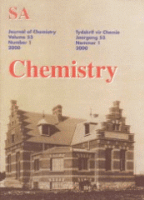
SOUTH AFRICAN JOURNAL OF CHEMISTRY-SUID-AFRIKAANSE TYDSKRIF VIR CHEMIE
Unleashing Potential: Chemistry Without BarriersSouth African Journal of Chemistry (Suid-Afrikaanse Tydskrif vir Chemie), published by Bureau Scientific Publications, is a pivotal open-access journal that has been disseminating groundbreaking research in the field of chemistry since its inception in 1996. With an ISSN of 0379-4350 and an E-ISSN of 1996-840X, this journal serves as a vital platform for researchers and professionals seeking to share their work and engage with the global chemistry community. Recognized for its significant contributions, the journal holds a Q3 quartile ranking in the miscellaneous chemistry category as of 2023 and ranks #216 out of 408 in General Chemistry according to Scopus. The South African Journal of Chemistry is dedicated to advancing knowledge in the discipline by publishing a wide array of articles, reviews, and studies that address pertinent chemical research and applications. With open access options available since 2000, it fosters a collaborative environment, ensuring that research is accessible to all, thereby enhancing the visibility and impact of chemists' work across South Africa and beyond.
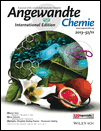
ANGEWANDTE CHEMIE-INTERNATIONAL EDITION
Advancing Chemistry Through Rigorous ResearchANGEWANDTE CHEMIE-INTERNATIONAL EDITION, published by WILEY-V C H VERLAG GMBH, stands as a leading journal in the fields of Chemistry and Catalysis, holding a prestigious position with a Q1 ranking in both categories as of 2023. With an ISSN of 1433-7851 and an E-ISSN of 1521-3773, this esteemed publication has been an invaluable resource for the global scientific community since its inception in 1962. The journal's impact is further underscored by its remarkable Scopus rankings, where it occupies the 13th place among 408 journals in General Chemistry and the 4th place among 68 in Chemical Engineering - Catalysis, marking it in the 96th and 94th percentiles, respectively. Although it does not offer Open Access, ANEWANDTE CHEMIE-INTERNATIONAL EDITION remains essential for researchers, professionals, and students seeking to stay abreast of cutting-edge developments and innovations in chemical sciences. Its comprehensive scope and rigorous peer-review process ensure that only the highest quality research finds its way to publication, contributing significantly to the advancement of chemistry worldwide.

Revista Virtual de Quimica
Exploring Innovative Frontiers in Chemical SciencesRevista Virtual de Quimica, published by the SOC BRASILEIRA QUIMICA, is a dynamic online journal based in Brazil, dedicated to promoting innovative research in the field of chemistry and related disciplines. Established in 2011, the journal has made significant strides in contributing to the academic landscape, receiving an impact factor that highlights its relevance, although it currently holds a Q4 quartile ranking in the miscellaneous category of Chemistry and Mathematics as of 2023. The journal is committed to open access, ensuring that scholarly articles are readily available to researchers, professionals, and students worldwide. Its focus encompasses diverse areas within general chemistry, aiming to foster knowledge sharing and collaboration among the scientific community. By providing a platform for high-quality research publications, Revista Virtual de Quimica stands as an essential resource for advancing chemical sciences and encouraging interdisciplinary studies.

Journal of the Iranian Chemical Society
Elevating Chemical Knowledge with Every PublicationThe Journal of the Iranian Chemical Society, published by SPRINGER, is a prominent academic journal dedicated to advancing the field of chemistry. With an ISSN of 1735-207X and an E-ISSN of 1735-2428, this quarterly journal has been contributing valuable research from 2006 to 2024. Situated in Germany, it serves as a vital platform for chemists and researchers to disseminate their findings, particularly within the miscellaneous chemistry category, where it ranks in the Q3 quartile for 2023. Despite its current lack of open access options, the journal maintains a solid presence in the academic community, evidenced by its Scopus ranking of #165 out of 408 in general chemistry and a commendable 59th percentile. The journal's objective aims to foster innovation and collaboration in chemical research, making it an essential resource for professionals and students keen on pioneering developments in the field. As a subscriber, you will gain insights into cutting-edge research that drives the future of chemistry.

Green Chemistry Letters and Reviews
Leading the charge in sustainable scientific discovery.Green Chemistry Letters and Reviews is a premier Open Access journal published by TAYLOR & FRANCIS LTD, dedicated to advancing the field of green chemistry through the dissemination of high-quality research and innovative reviews. With a focus on sustainable practices and environmental impacts, this journal positions itself at the nexus of chemistry and environmental science, achieving impressive rankings in both categories—Q1 in Chemistry (miscellaneous) and Q1 in Environmental Chemistry as of 2023. This esteemed publication, based in the United Kingdom, not only promotes critical research but also encourages accessibility, having been an Open Access platform since 2012. With a robust H-Index reflecting its academic influence, Green Chemistry Letters and Reviews serves as an essential resource for researchers, professionals, and students seeking to engage with cutting-edge developments in green chemistry from 2007 onwards, continuing its impactful journey into 2024 and beyond.

PERIODICA POLYTECHNICA-CHEMICAL ENGINEERING
Elevating Academic Dialogue in Chemical EngineeringPERIODICA POLYTECHNICA-CHEMICAL ENGINEERING is a distinguished journal published by the Budapest University of Technology and Economics, focusing on the diverse field of chemical engineering. Established in 1968 and transitioning to Open Access since 1999, this journal provides a vital platform for sharing cutting-edge research and innovations in chemical engineering and related disciplines. With an HIndex that reflects its growing influence and categorized in the Q3 Quartile for Chemical Engineering (miscellaneous) in 2023, PERIODICA POLYTECHNICA aims to facilitate the dissemination of knowledge among researchers, professionals, and students alike. The journal's Scopus rankings in Environmental Science, General Chemistry, Materials Science, and Biochemistry showcase its multidisciplinary approach, making it an essential resource for anyone engaged in advancing their expertise in chemical engineering and the broader scientific community. Located in Hungary, PERIODICA POLYTECHNICA continues to contribute to the academic dialogue and inspire innovative solutions to contemporary challenges.
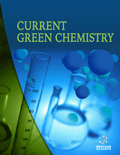
Current Green Chemistry
Empowering researchers to shape a greener chemical landscape.Current Green Chemistry, published by Bentham Science Publishers, is a pivotal scholarly resource devoted to advancing the field of green chemistry. With ISSN 2213-3461 and E-ISSN 2213-347X, this journal serves as a crucial platform for researchers and professionals to explore innovative and sustainable practices within the chemical sciences. The journal has demonstrated significant recognition, evidenced by its categorization in the third quartile (Q3) across various specializations including Analytical Chemistry and Inorganic Chemistry, and even a fourth quartile (Q4) in Organic Chemistry, according to the latest Scopus metrics. This indicates a growing influence in relevant fields, making it a valuable reference for contemporary environmental initiatives. The journal's accessible nature, although not open access, ensures researchers can still engage with high-quality, peer-reviewed content. Spanning an impressive converged period from 2019 to 2024, Current Green Chemistry is committed to enhancing the visibility of groundbreaking research that aligns with sustainable development objectives, making it an essential resource for anyone interested in the future of chemistry.
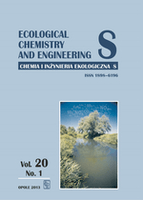
Ecological Chemistry and Engineering S-Chemia I Inzynieria Ekologiczna S
Exploring the Frontiers of Environmental EngineeringEcological Chemistry and Engineering S, a prominent journal in the field of Environmental Chemistry and Engineering, provides a platform for innovative research and critical discussions surrounding ecological solutions and sustainable practices. Published by SCIENDO, this peer-reviewed journal is accessible to researchers and professionals dedicated to advancing our understanding of ecological systems and sustainable engineering practices. With an ISSN of 1898-6196 and an E-ISSN of 2084-4549, the journal has established itself in the academic community, reflected by its Q3 ranking in both Environmental Chemistry and Environmental Engineering categories as of 2023. Covering significant advancements from 2008 to 2024, it serves as an essential resource in advancing knowledge and fostering collaborations within interdisciplinary fields. Despite not offering open access, the journal remains an invaluable resource for researchers and students aiming to contribute to ecological sustainability strategies worldwide.